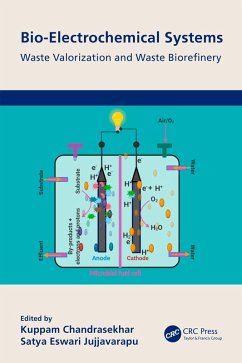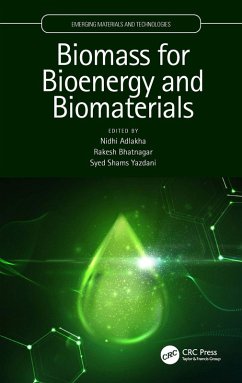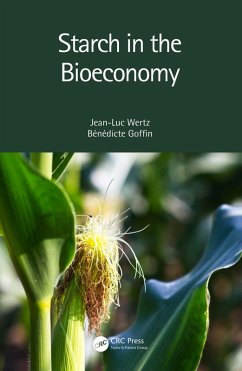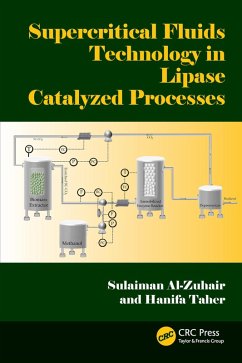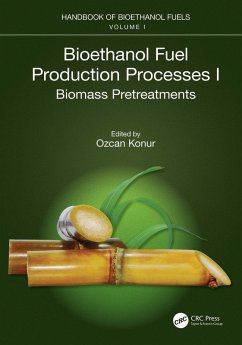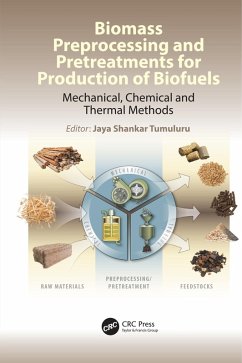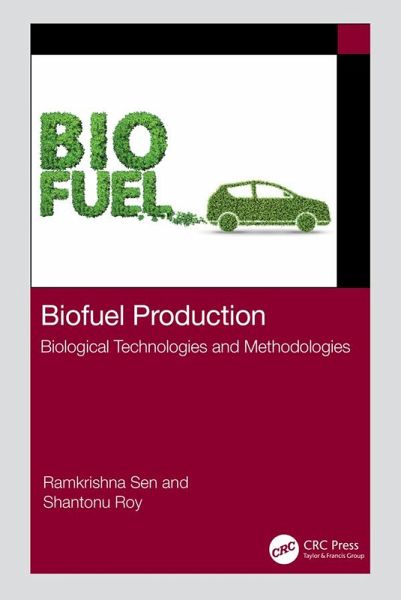
Biofuel Production (eBook, ePUB)
Biological Technologies and Methodologies
Versandkostenfrei!
Sofort per Download lieferbar
44,95 €
inkl. MwSt.
Weitere Ausgaben:

PAYBACK Punkte
22 °P sammeln!
Biofuels and bioenergy have emerged as an alternative option based on their sustainability, concomitant waste treatment, and site-specific flexibility. This book encompasses all the knowhow of different biofuel production processes through biological methods. It describes recent advancements in all major biofuel technologies such as biohydrogen, biomethane, bioethanol, syngas and so forth. Related protocols supported by schematic representation are included, encompassing comprehensive up-to-date scientific and technological information in biofuels and bioenergy.Features: Includes practical app...
Biofuels and bioenergy have emerged as an alternative option based on their sustainability, concomitant waste treatment, and site-specific flexibility. This book encompasses all the knowhow of different biofuel production processes through biological methods. It describes recent advancements in all major biofuel technologies such as biohydrogen, biomethane, bioethanol, syngas and so forth. Related protocols supported by schematic representation are included, encompassing comprehensive up-to-date scientific and technological information in biofuels and bioenergy.
Features:
This book is aimed at researchers and graduate students in chemical, biochemical and bioprocess engineering, and biofuels.
Features:
- Includes practical approaches focused on process design and analysis in biofuel production via biological routes
- Discusses kinetic equations of different microbial systems
- Provides comprehensive coverage of biochemical kinetics and equations related to biofuel process
- Describes protocols for setting up of experiments for pertinent biofuel technologies
- Emphasis on practical engineering approaches and experiments
This book is aimed at researchers and graduate students in chemical, biochemical and bioprocess engineering, and biofuels.
Dieser Download kann aus rechtlichen Gründen nur mit Rechnungsadresse in A, B, BG, CY, CZ, D, DK, EW, E, FIN, F, GR, HR, H, IRL, I, LT, L, LR, M, NL, PL, P, R, S, SLO, SK ausgeliefert werden.




